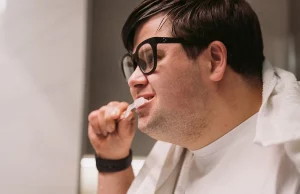Do you get summers off in medical school? Many prospective medical students often wonder about the lifestyle and schedule of med school. While summers seem like a time for relaxation, the reality for most medical students is different. Medical school schedules are rigorous and intense, with minimal breaks, especially during the first two years. However, this doesn’t mean students don’t get any time off at all.
In this article, we will explore the academic calendar of medical schools, detailing how summers are typically spent. We will discuss the difference between clinical and pre-clinical years, how students can manage their time, and what options are available during the summer months. Additionally, we will touch upon the importance of research, internships, or elective courses that many students pursue during the summer. This will give you a clearer understanding of what to expect when it comes to medical school summers.
Do you get summers off in medical school?
Generally, medical students do not get the entire summer off. The academic schedule varies between schools, but most students spend their summer working on clinical rotations, research projects, or other activities related to their field of study. Some medical schools offer short breaks, but it’s rare for students to have an entire summer of free time. It’s essential to plan for this demanding schedule and manage your time effectively to balance academics and any personal commitments.
The Truth About Summers Off in Medical School
Medical school is a demanding journey that doesn’t align with the traditional summer break schedule seen in other academic fields. In most cases, medical schools do not provide long summer vacations. The academic year is filled with lectures, labs, and clinical training, leaving little time for extended breaks. However, how summers are spent can vary between the first and second halves of medical school.
During the first two years, students follow a pre-clinical curriculum, which includes lectures, labs, and exams. Although summers are typically reserved for coursework and studying, many students take advantage of this time for research projects, internships, or medical electives that provide hands-on experience. These opportunities are crucial for developing practical skills in the medical field.
In the later years, students enter the clinical phase, where they complete rotations in various specialties. Some students may have brief breaks during this time, but many choose to use their summers to participate in clinical experiences or research projects to hone their skills and knowledge further. Summers are rarely “off” but are instead used for career development and academic advancement.
What Do Medical Students Do During Summer Break?
Summer break in medical school is not like traditional summer vacations. While students may have some free time, many choose to use this period for valuable academic and career-building activities.
Research Opportunities
Many medical students dedicate their summers to research projects, which offer a chance to explore a specific area of interest in-depth. These projects help students develop critical thinking skills, contribute to the medical field, and build a strong foundation for their careers. Some students work in labs, while others collaborate with faculty on clinical research, gaining hands-on experience in the process.
Internships and Electives
Summer is an ideal time for medical students to pursue internships and elective courses. Some students choose internships related to healthcare or public health, while others may explore electives outside the standard curriculum, such as medical humanities, global health, or business. These electives broaden their knowledge and expose them to diverse areas of the medical field.
Clinical Rotations
As students progress to the later years of medical school, many participate in clinical rotations during the summer. These rotations provide hands-on experience in various medical specialties and are crucial for preparing students for residency. Practical experience in hospitals and clinics enhances their skills and medical knowledge.
Volunteer Work
Many medical students also volunteer during the summer, either locally or internationally. Volunteering helps them build empathy, understand healthcare disparities, and grow personally while making a positive impact in the community.
Can You Take Time Off During Summer in Medical School?
While medical school doesn’t typically provide long summer vacations, some students do have options to take breaks or use the time for personal development. It’s essential to consider your goals for the summer and discuss options with your academic advisor. Some students may choose to take a break if they are ahead in their coursework or if their school offers a flexible summer schedule.
- Taking Time Off: It’s rare for students to have an entire summer off, but some schools may allow students to take a limited break during the summer if they’ve completed specific requirements.
- Plan for Rest and Recharging: Some students use part of the summer to rest and recharge, which is essential for maintaining mental and physical health during the rigorous medical curriculum.
Managing Your Time During Summer in Medical School
Managing time effectively during the summer is crucial for medical students. With a packed schedule that includes clinical rotations, research, and studying, time management becomes a skill that is developed early on. Here are some tips:
- Prioritize Responsibilities: Determine what’s most important during the summer months, such as clinical experience, research, or personal time.
- Set Realistic Goals: Make a list of goals for the summer and break them down into manageable tasks.
- Balance Work and Rest: Ensure you allocate time for relaxation and self-care to avoid burnout.
- Stay Organized: Use planners or digital calendars to keep track of deadlines, clinical shifts, and research commitments.
- Seek Support: Don’t hesitate to reach out to professors, mentors, or peers for advice on managing your summer workload.
By managing your time effectively, you can make the most of your summer while maintaining a healthy work-life balance. If you’re managing different tasks like tracking time or distance, a KPH to MPH Converter could help you quickly calculate any necessary conversions during clinical rotations or travel to various locations for your internships.
Why Summer Breaks Are Different in Medical School?
The concept of summer breaks is vastly different in medical school compared to other academic fields. Unlike undergraduate programs, where summer often means an extended vacation, medical school requires a commitment to continuous learning and hands-on experience. The intense nature of medical education means that breaks are shorter and may be spent in more productive, career-building activities such as research or clinical rotations. Here’s why summer breaks differ:
Demanding Curriculum
The medical curriculum is designed to provide students with as much practical experience and knowledge as possible, leaving little room for extended breaks.
Building Skills for Residency
During the summer, students are expected to continue building their medical knowledge and clinical skills, which are crucial for residency and beyond.
Opportunity for Career Development
Summer activities like internships, research, and electives help medical students build their resumes and professional network, enhancing their future career prospects.
Final Remarks
In conclusion, do you get summers off in medical school? Not in the traditional sense. While medical students may have shorter breaks, summers are often spent on research, internships, electives, and clinical rotations. Medical school offers an immersive, year-round education aimed at preparing students for a challenging healthcare career. However, with effective time management, students can balance their academic workload with personal time, ensuring a fulfilling experience. Prospective medical students should be prepared for the rigorous schedule and understand that summer activities, such as hands-on experience and career development, are essential to their education and future success in the medical field.
FAQ’s
Can I take the summer off in medical school?
While it’s rare to have an entire summer off, some medical schools offer breaks during which students can relax, but many choose to engage in research or clinical experiences.
What is the typical summer schedule for medical students?
Most medical students spend their summers working on research projects, clinical rotations, internships, or volunteering. It’s a time for gaining hands-on experience.
How do I balance work and rest during medical school summers?
Effective time management and setting clear goals for the summer can help you balance responsibilities with relaxation and self-care.
Can medical students take vacations during the summer?
Depending on the school’s schedule and the student’s workload, short vacations may be possible. However, most students prefer to use the time to advance their studies and career.
Are summers off in medical school the same as in other degrees?
No, medical school typically doesn’t offer long summer breaks like undergraduate programs. Summers are usually spent on career development or academic pursuits.














